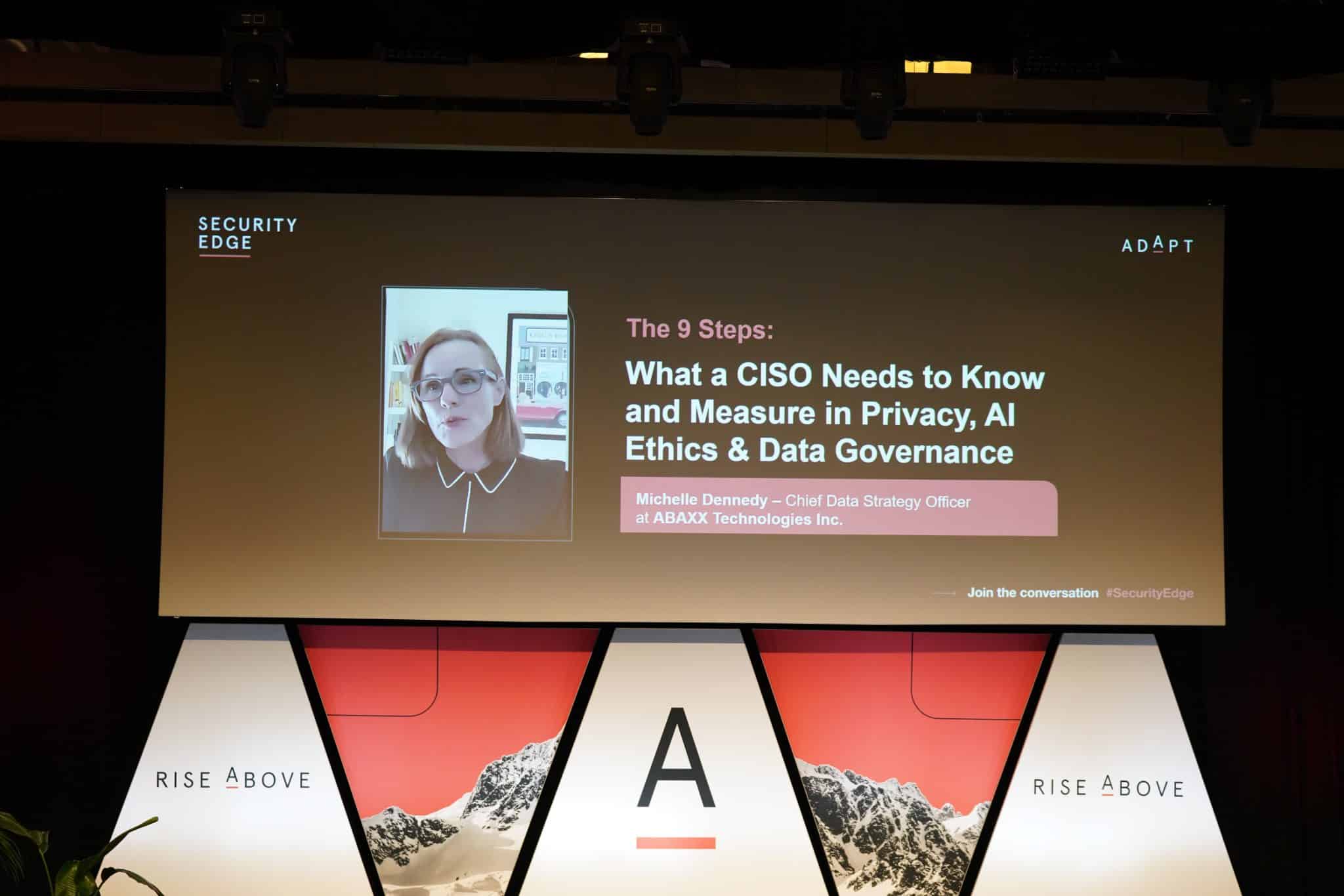9 steps for a CISO to measure in privacy, AI ethics & data governance
Michelle Dennedy, Chief Data Strategy Officer at Abaxx Technologies, discusses the evolution of computing and the growing importance of ethical considerations in technology, particularly with AI and machine learning at Security Edge.Michelle Dennedy, Chief Data Strategy Officer at Abaxx Technologies, discusses the evolution of computing and the growing importance of ethical considerations in technology, particularly with AI and machine learning at Security Edge.
In the past, the primary focus was on whether technology could perform tasks, but now the question is shifting towards whether it should, with considerations of privacy, data governance, and security becoming paramount.
She emphasises the need for organisations to understand the current landscape, select appropriate frameworks, and cultivate a data-centric and privacy-focused culture.
This involves integrating efficiencies, enhancing proactive privacy efforts, and ensuring that data governance and communication are optimised. In essence, the key is to harmonise technology with ethical standards to create a sustainable and secure environment.
Michelle also introduces the concept of “wicked problems,” which are complex and multi-faceted, such as privacy, security, and data protection.
These problems have no simple solution and require continuous attention and adaptation. She explains that organisations must adopt a holistic approach, recognising that solving one issue often creates new challenges.
For example, global privacy definitions vary, making it difficult to implement standardised solutions. Michelle stresses the importance of cross-functional collaboration, where privacy and security teams work together to develop comprehensive strategies.
By aligning ethical considerations with legal requirements and organisational capabilities, businesses can navigate the complexities of data management and create efficient, ethical, and long-term solutions.
Poor data quality, particularly involving incorrect primary contacts such as PO box addresses, can lead to significant inefficiencies and security vulnerabilities, including social engineering risks.
By addressing these data quality issues, the company recovered $8 billion in operating capital, solving what they initially thought was a marketing problem.
This success highlights the importance of treating data management as a wicked problem, constantly reassessing landscapes, and ensuring a data defender culture is ingrained across the organisation.
By strengthening privacy, AI ethics, and data governance, the company has become more nimble in addressing ethical challenges and entering new markets confidently.
Key takeaways:
- Poor data quality: Inadequacies in collecting data, such as incorrect primary contacts, can lead to significant inefficiencies and security vulnerabilities, including social engineering risks.
- Building a strong data defender culture: Maintaining high data sovereignty and quality is essential for aligning business processes with privacy and ethical standards.
- A structured approach to data governance: This allows for confident decision-making at the board level, enabling market expansion into countries like Brazil, Chile, and Canada.





























